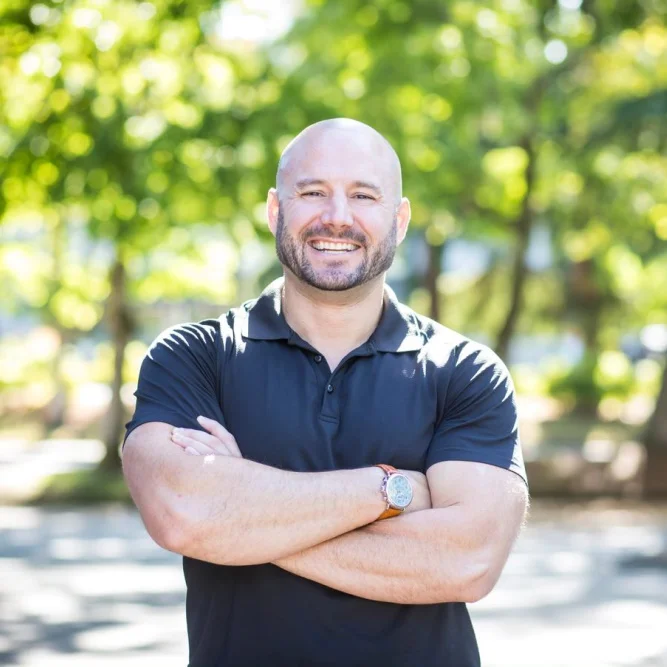Ehlers-Danlos (EDS) Treatment & Support in Redmond
Gentle, EDS-informed chiropractic and rehab care focused on stability, function, and quality of life.
- Tailored care for EDS and hypermobility spectrum disorders
- Emphasis on joint stability, pain reduction, and safer movement
- Collaborative approach that respects your diagnosis and history
Living with Ehlers-Danlos: You’re Not “Just Flexible”
If you’re living with Ehlers-Danlos syndrome (EDS) or hypermobility spectrum disorder, you already know this is more than “being bendy.” You may deal with joints that slip or sublux, pain that moves from one area to another, fatigue that doesn’t match what you’ve done that day, and a body that doesn’t always feel predictable or stable.
Many people with EDS have spent years being told their pain is “in their head” or that they’re simply overdoing it. By the time you find a name for what you’re experiencing, you might also be carrying a lot of frustration and worry about the future.
At Eastside Ideal Health in Redmond, we take EDS seriously. Our job is to listen, to understand how your symptoms affect your daily life, and to build a plan that respects connective tissue disorders while helping you move, function, and feel as well as possible.
EDS at a Glance
- Knees, shoulders, hips, or ribs that feel loose or prone to slipping
- Frequent sprains, strains, or soft-tissue injuries from everyday activities
- Widespread aches and pains that don’t align with imaging or lab tests
- Muscle tension from constantly trying to “hold yourself together”
- Fatigue, brain fog, and feeling like your body is working overtime
If this sounds familiar, you’re not alone—and you are not a “difficult patient” here.
Why EDS Needs a Different Kind of Chiropractic and Rehab Care
Most musculoskeletal care is built around the idea that joints are too stiff and need to be loosened. In Ehlers-Danlos and hypermobility, the challenge is often the opposite: your connective tissue is more lax, and your body relies heavily on muscles and motor control to compensate.
EDS-informed care is gentler, more cautious, and focused on stability. It’s about giving your joints support, teaching better control, and helping you understand what is safe versus what might increase your risk of injury.
Typical Care
- High-force, twisting manipulations
- Generic exercise plans
- “Push through it” mentality
- Little coordination with other providers
EDS-Informed Care
- Gentle, low-force techniques when appropriate
- Stability-first movement strategies
- Respect for pacing and flare management
- Collaboration with your broader medical team
How We Support Patients with Ehlers-Danlos in Redmond
Because EDS affects every layer of connective tissue, no two patients look exactly the same. Our team builds your plan from the ground up, starting with your story, your goals, and your current capacity. From there, we choose the safest and most effective tools for you.
Comprehensive Assessment
Detailed history of your joint stability, dislocations, surgeries, medications, and diagnoses. We assess real-life movement patterns to identify the joints that need support and discuss your energy levels and flare patterns.
Gentle, Low-Force Chiropractic
When manual care is appropriate, we use low-force techniques with emphasis on control and safety. We never manipulate areas that feel unstable; alignment and comfort guide every decision.
Functional Stability Training
Targeted, progressive exercises help muscles around your joints provide reliable support. Movements are slow, controlled, and designed for repeatable home practice.
Soft Tissue Therapy
Respectful soft tissue work eases chronic tightness and trigger points without compromising joint integrity. We aim to reduce protective tension while preserving stability.
Mobility & Pacing Strategies
We coach you through ergonomic tweaks, pacing plans, and daily-life strategies so you can move through work, home, and recreation with less fear of flare-ups.
Collaboration & Advocacy
With your permission, we coordinate with your physicians and specialists. Our role is to support musculoskeletal health while respecting any precautions in place.
What to Expect When You Come to Our Redmond Clinic
We know it can be intimidating to start care when you’ve had mixed experiences in the past. Here’s how your EDS-focused care typically unfolds.
Conversation & History
Your first visit is about listening. We explore your diagnosis, prior injuries, flares, medications, and goals so we understand what “better” looks like for you.
Movement & Stability Assessment
We observe posture, gait, strength, and joint control collaboratively—nothing is rushed, and you can pause anytime something feels unsafe.
Gentle Care & Exercise Plan
We introduce appropriate manual techniques and a realistic home program that favors control over intensity, building a durable foundation.
Ongoing Support
EDS management is long-term. We check in frequently, adjust your plan, and prioritize confidence, resilience, and flare prevention.
Is Chiropractic and Rehab Care Safe with EDS?
Safety is our top priority. Every EDS or hypermobility patient is evaluated individually, and nothing is done without your understanding and consent. Below are answers to common questions we hear.
It can be, when it’s done thoughtfully and adapted to your condition. We avoid high-force, high-velocity techniques on unstable joints and instead use gentler options when appropriate. In some areas we may decide not to adjust at all and focus on exercise, soft tissue work, and movement strategies.
For EDS and hypermobile patients, we generally avoid strong twisting or high-speed manipulations, especially where instability already exists. If a technique isn’t the right fit for you, we simply will not use it.
Your history guides our plan. We identify which joints need targeted stabilization, which should be protected, and we teach daily-life strategies to reduce re-injury risk.
Yes. With your permission, we coordinate with your physicians, geneticists, rheumatologists, cardiologists, and other specialists so everyone stays aligned on precautions and goals.
Timelines vary. Some patients notice changes within weeks; others progress more gradually. We focus on lasting stability and honest expectations rather than quick fixes.
Absolutely. Many HSD patients face similar pain, fatigue, and joint-control challenges. Our stability-first, collaborative approach applies to HSD as well.

EDS-Aware Care from an Experienced Provider
At Eastside Ideal Health, you’ll work with providers who understand the nuances of Ehlers-Danlos and hypermobility. Dr. Ben Greenwade combines advanced training in sports medicine, rehabilitation, and chiropractic care—and he is listed in a leading Ehlers-Danlos healthcare directory.
This recognition reflects years of supporting hypermobile patients with thoughtful, evidence-informed care. Our entire team shares the same philosophy: respect your diagnosis, listen to your lived experience, and build a plan that serves you as a whole person.
Real Patients, Real-Life Progress
“Before I came in, my ankles rolled all the time. I was terrified of stepping off a curb. We started with really small stability exercises and gentle treatment for my knees and hips. It took time, but now I can walk my dog around the block without feeling like every step is a risk.”
EDS Patient, Redmond“I always felt like one wrong twist would dislocate something. During my visits, nothing was rushed. Everything was explained and I had the right to say no at any point. The combination of exercises and careful hands-on work helped me feel more stable and more in control of my body again.”
Hypermobility Spectrum Disorder PatientReady to Explore EDS-Informed Care in Redmond?
If you’re living with Ehlers-Danlos syndrome or hypermobility and you’re looking for care that respects your condition, we’re here to help. We’ll start with a conversation, not a rapid-fire series of adjustments.
